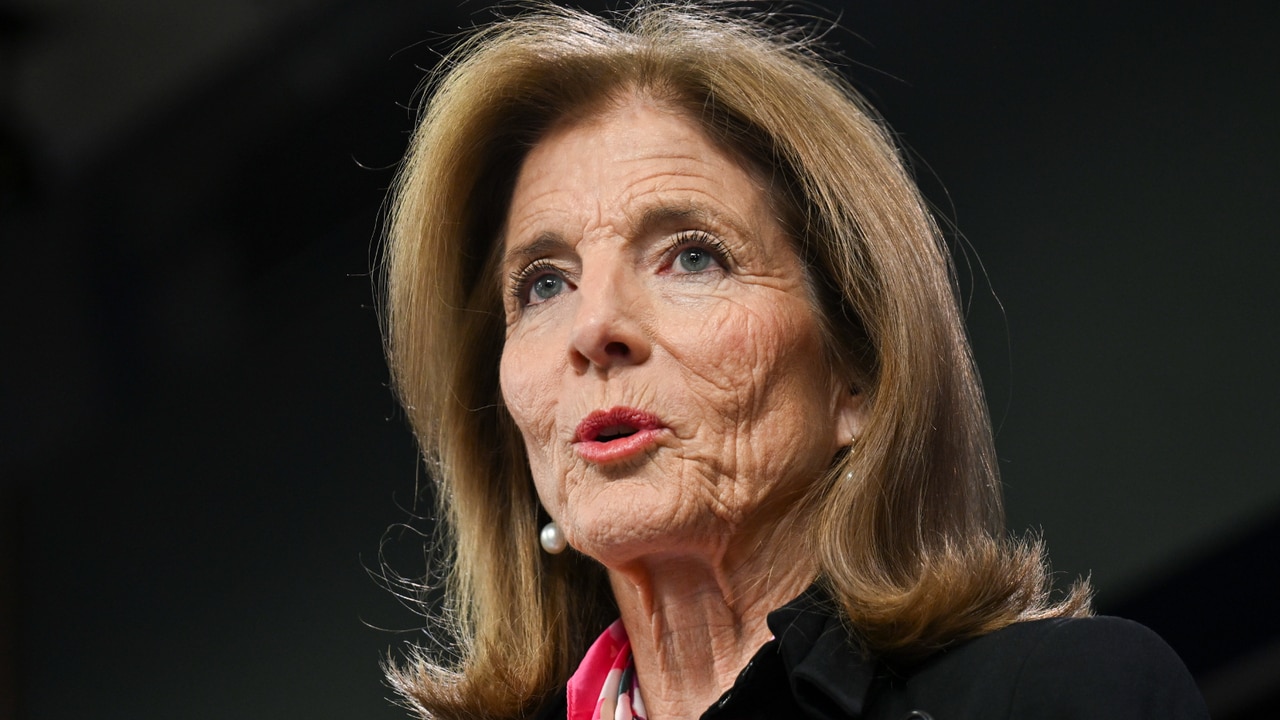Robert F. Kennedy Jr. Nomination & Caroline Kennedy's Health - What You Need To Know
Apr 24 2025
Is it possible to navigate the complexities of public life while privately battling chronic illness? Caroline Kennedy's journey, marked by her lineage, diplomatic career, and resilience in the face of health challenges, offers a compelling case study in managing the intersection of personal well-being and public perception.
The glare of the public spotlight has long been focused on Caroline Kennedy, the daughter of President John F. Kennedy and Jacqueline Kennedy Onassis. Born on November 27, 1957, in New York City, she entered the world already destined for a life of both privilege and intense scrutiny. The assassination of her father in Dallas on November 22, 1963, forever altered her childhood, thrusting her into the role of a public figure at a tender age. Since then, she has navigated the world with grace, earning respect for her work as an author, diplomat, and attorney. However, her journey has also been marked by personal health challenges, particularly her struggle with rheumatoid arthritis, which has added another layer of complexity to her public life.
| Attribute | Details |
|---|---|
| Full Name | Caroline Bouvier Kennedy |
| Date of Birth | November 27, 1957 |
| Place of Birth | New York City, New York, USA |
| Parents | John F. Kennedy and Jacqueline Kennedy Onassis |
| Education | Radcliffe College, Columbia Law School |
| Profession | Author, Attorney, Diplomat |
| Notable Positions |
|
| Marital Status | Married to Edwin Schlossberg (1986-Present) |
| Children | Rose Schlossberg, Tatiana Schlossberg, John Schlossberg |
| Health Condition | Rheumatoid Arthritis, Thyroid Cancer (reported) |
| Reference | Wikipedia - Caroline Kennedy |
Her public profile has always been intertwined with her family's legacy, especially with the high-profile public figure that she is, even before she became a public servant and diplomat. This connection has meant that both her successes and challenges are often viewed through the lens of history and political commentary. In recent years, discussions about her health have occasionally surfaced, fueling public curiosity and raising questions about her well-being. The most significant of these discussions involves her battle with rheumatoid arthritis, an autoimmune condition that affects the joints. Diagnosed in 1999 following a camping trip in Colorado, Kennedy has been open about the chronic nature of the disease and the challenges it presents, including severe leg pain and mobility issues. Although her age is only 67, speculation about her skin and age has sparked discussion regarding the potential for illness to be a factor. While the former United States ambassador, Caroline Kennedy, has maintained her privacy, she has also addressed her health issues publicly. This openness, especially concerning her thyroid cancer diagnosis and treatment, has been praised for raising awareness about early detection and health screenings.
The news of Robert F. Kennedy Jr.'s nomination to serve as Trump's Secretary of Health and Human Services ignited controversy. While the nomination's future remained uncertain, Caroline Kennedy herself entered the fray, in a bombshell warning letter to U.S. Senators, accusing Robert F. Kennedy Jr. of being a "predator" addicted to power. Her scathing letter, in which she urged the Senate to reject his nomination, served as a stark reminder of the personal and political complexities within the Kennedy family, and added another layer to the discussion of health and public service. Her actions, and those of Maria Shriver who expressed support for her, highlight the deep-seated relationships and values that shape the publics understanding of the Kennedy family and their legacy.
Beyond her health struggles, Caroline Kennedy has shown remarkable resilience. Despite facing challenges, she continues to be an influential figure, remaining active in various causes and maintaining a presence on the public stage. Her dedication to public service, combined with her personal health journey, paints a picture of an individual who has learned to balance her own needs with the demands of a high-profile life. While some focus on appearances or speculate on health issues, Caroline Kennedys ability to adapt and persist is a testament to her character.
The conversation surrounding Caroline Kennedys health also provides an opportunity to reflect on the broader implications of managing health risks in the public eye. It emphasizes the importance of empathy and understanding when addressing health challenges, regardless of an individuals status or background. By exploring potential causes, symptoms, and treatment options, it is possible to gain insights into managing health risks and supporting those in need. Furthermore, it opens discussions about how public figures can manage their health in a way that balances their need for privacy with their responsibilities as role models.
The discussion about Caroline Kennedys health challenges also underscores the importance of responsible media coverage. While the public has a natural curiosity about prominent figures, it is essential that discussions remain respectful and focus on factual information. Sensationalism or the spread of misinformation can be damaging, and it is essential that media coverage prioritizes accuracy and empathy. This approach is critical in raising awareness about health issues while protecting the privacy and dignity of individuals.
The publics interest in Caroline Kennedys health highlights a broader fascination with the Kennedy family. The family's historical significance, their tragedies and triumphs, have captivated people for generations. As the sole surviving child of President John F. Kennedy and Jacqueline Kennedy Onassis, Caroline has always been in the public eye. Her life has been intricately woven into the narrative of American history. This public interest extends to her health challenges, mirroring the curiosity about how she has navigated the intersection of private struggles and public life. The assassination of President Kennedy in Dallas on November 22, 1963, forever changed her life, propelling her into the role of a symbol for resilience and grace. Now, she continues to engage with the public, attending events, and remaining a figure of influence, despite the challenges she faces. Her actions have always reflected her deep commitment to the well-being of others, even while facing personal health challenges.
Caroline Kennedy's openness about her rheumatoid arthritis and her openness about her thyroid cancer diagnosis and treatment have raised awareness about the importance of early detection and regular health screenings. Her candid discussions about health issues demonstrate a commitment to breaking down stigmas and encouraging others to prioritize their well-being. Her efforts to educate and inspire serve as a reminder that health challenges can affect anyone, regardless of their status or background. The impact of her advocacy extends beyond herself, contributing to a culture of health and well-being.
Her openness about her experiences provides valuable insights into the journey of managing chronic health conditions. By sharing her struggles, Kennedy encourages others to seek support, prioritize their health, and navigate their own health journeys. This helps create a community where individuals feel empowered to discuss their challenges openly, reducing feelings of isolation. Kennedy's advocacy also highlights the importance of empathy and understanding, essential in fostering a supportive environment for those with chronic conditions. Her approach serves as a reminder that while challenges may be constant, they do not have to define individuals.
Throughout her career, Caroline Kennedy has shown a dedication to public service and advocacy. She has used her platform to champion causes she believes in, including arts, education, and environmental protection. Despite facing personal health challenges, she has continued to advocate for others. Her commitment to public service, combined with her ability to navigate personal challenges, serves as an inspiration. It underscores that personal struggles do not diminish ones capacity to serve others. Her actions, whether as a diplomat or a private citizen, have always aimed at creating a better world. She has consistently demonstrated the importance of resilience and perseverance.
In summary, Caroline Kennedys health journey is a reminder of the human condition. While she has achieved success, she has encountered personal challenges, including her battle with rheumatoid arthritis. Despite the media scrutiny and public interest, she has maintained her privacy while addressing her health issues publicly. The discussion surrounding her health highlights the importance of empathy and understanding when approaching health challenges. It underscores the need to approach health challenges with empathy and understanding. Caroline Kennedys resilience, her commitment to public service, and her openness about her health challenges, offer a compelling story about balancing public and private life.


